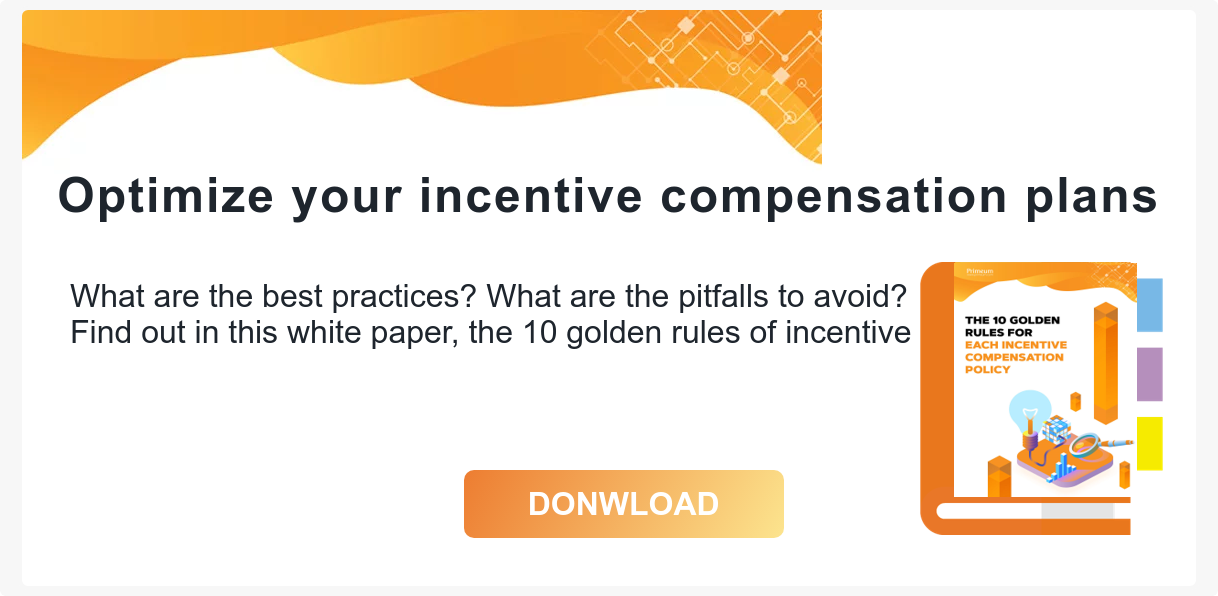Depending on the type of business, the lockdown’s impact on sales will be more or less strong and might change in time. For the majority of businesses, there is an immediate effect on sales, the containment led to a strong decline in sales if not to a complete shutdown. For other businesses, the specific impact cannot yet be determined due to a residual effect; and last, for a few other businesses, overstocking certain types of products has led to an abnormal peak in March sales, which led to inevitable compensations for the month of April.
In any case, a proactive communication around incentive compensation management during these times helps reassure the teams and supports them in remaining motivated.
In general, if a company is faced with a strong decline in sales and has put teams on hold, it is then time to switch the focus towards determining the budget allocated to bonuses:
- Should the budget be reduced and prorated based on the business inactivity time length, knowing that the unemployed associates would still be compensated? If this is the case, it is then necessary to inform the teams in order to keep them united during the company’s rough patch.
- Should the bonus’ budget be reported to ensure the much needed rebound right after the end of the crisis? If this is the choice that is made, then a clear and positive communication would help strongly energize the teams when they are back to work. Depending on the activities, the budget might have to be reported during the last quarter as this time of the year tends to be more strategic.
- Should we keep the budget as it is without changing the way it is processed? In some cases, that would be possible especially for those companies that measure their performance annually, and that forecast compensation for rebound. Nevertheless; we should make sure that it is the case although that will probably depend on the duration of the lockdown.
Now, we have to address the difficult matter of readjustment of the national target and its individual allocation. There is no doubt that it will be a driving factor in the teams’ motivation. Neither an over- ambitious target nor a weak one will drive the teams’ performance. If the readjusted national target’s estimate is uncertain, other variable pay plan schemes could be considered such as rankings through competitions or challenges in order to revive the business momentum. Last, in order to support the business, rebound action plans, strategic execution of qualitative bonuses could be rewarding, and carve the way to positive performance and economic indicators.
But especially, how to anticipate the restart incentive plan?
As the restart date is uncertain, flexibility with several return options is to be expected.
Determining end-of-year performance periods is a prerequisite, even if it means going out of the usual practices of the assessment and incentive payment periods:
- If the performance period is the quarter: a restart of the activity in May can allow to set a performance period of two months. On the other hand, if the restart is in June; this month should be attached to the following quarter in order to complete the performance period. A potential restart in may would allow to implement two performance periods of 4 months between May and December.
- Assuming that the performance period is usually the semester, June and May should be attached to the last semester, even if it means putting in place advance payments during the performance period.
Finally, another issue is to determine the calculation of the incentives for the period preceding the quarantine
Are 2 months and a half enough to assess the performance?
- If it is sufficient, by putting an end to the performance monitoring at the end of February, in mid-March or at the end of March, the incentive would be paid up to date. This is one of the advantages allowed by the commissioning.
- If, however, the response is negative and 2 months and half is not enough to assess the performance: it is possible to pay everyone the On Target Earning (or any other incentive) prorated to the worked period.
We should also think of the possible exceptional bonuses that can be granted to the production teams who continue working despite the risks of contagion. These teams, often unrelated to the commercial activity and don’t have in most cases a variable pay plan, are the ones who guarantee the supply of basic necessities and the continuum of the economic activity of the firms that are still open.




